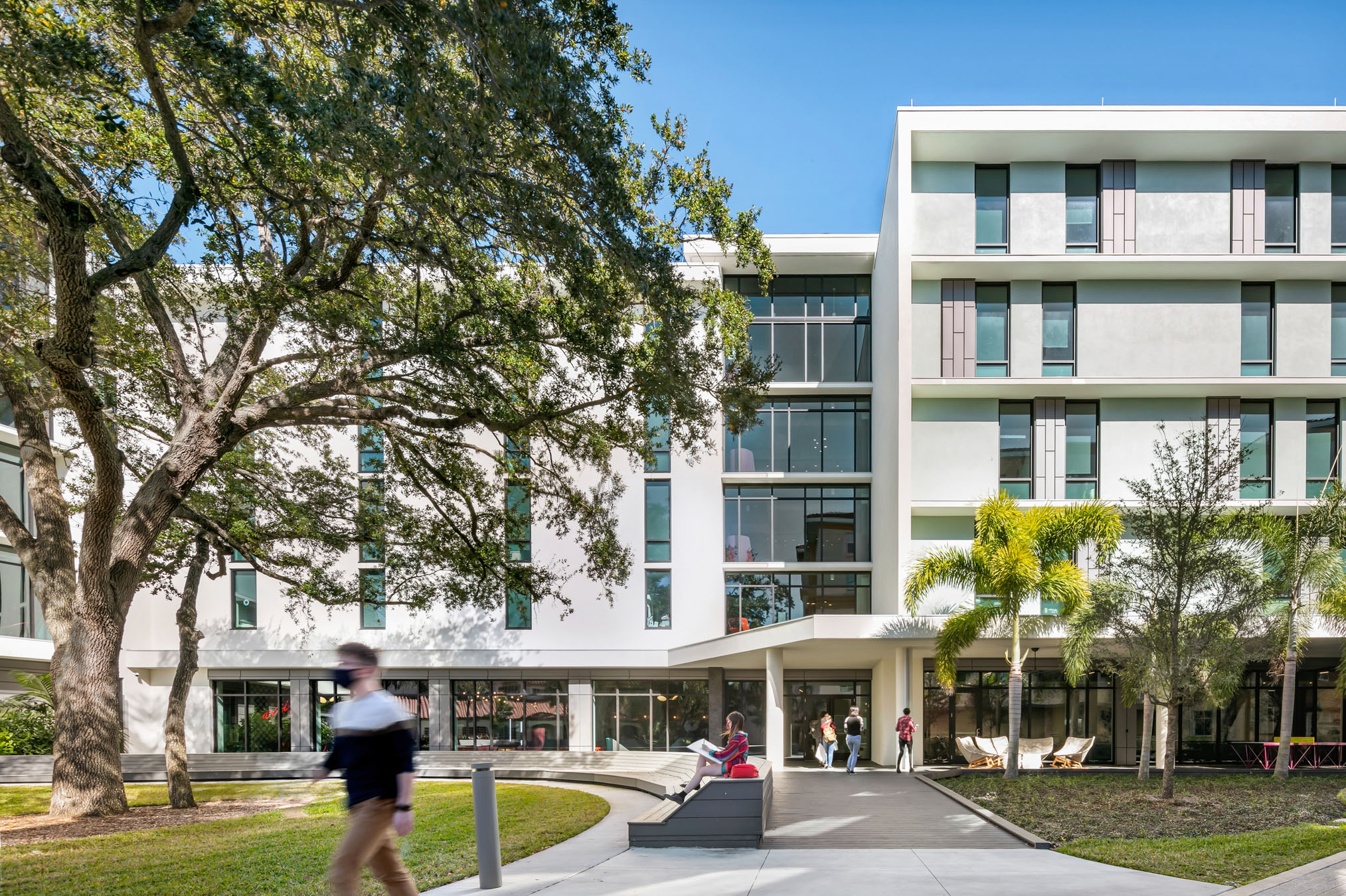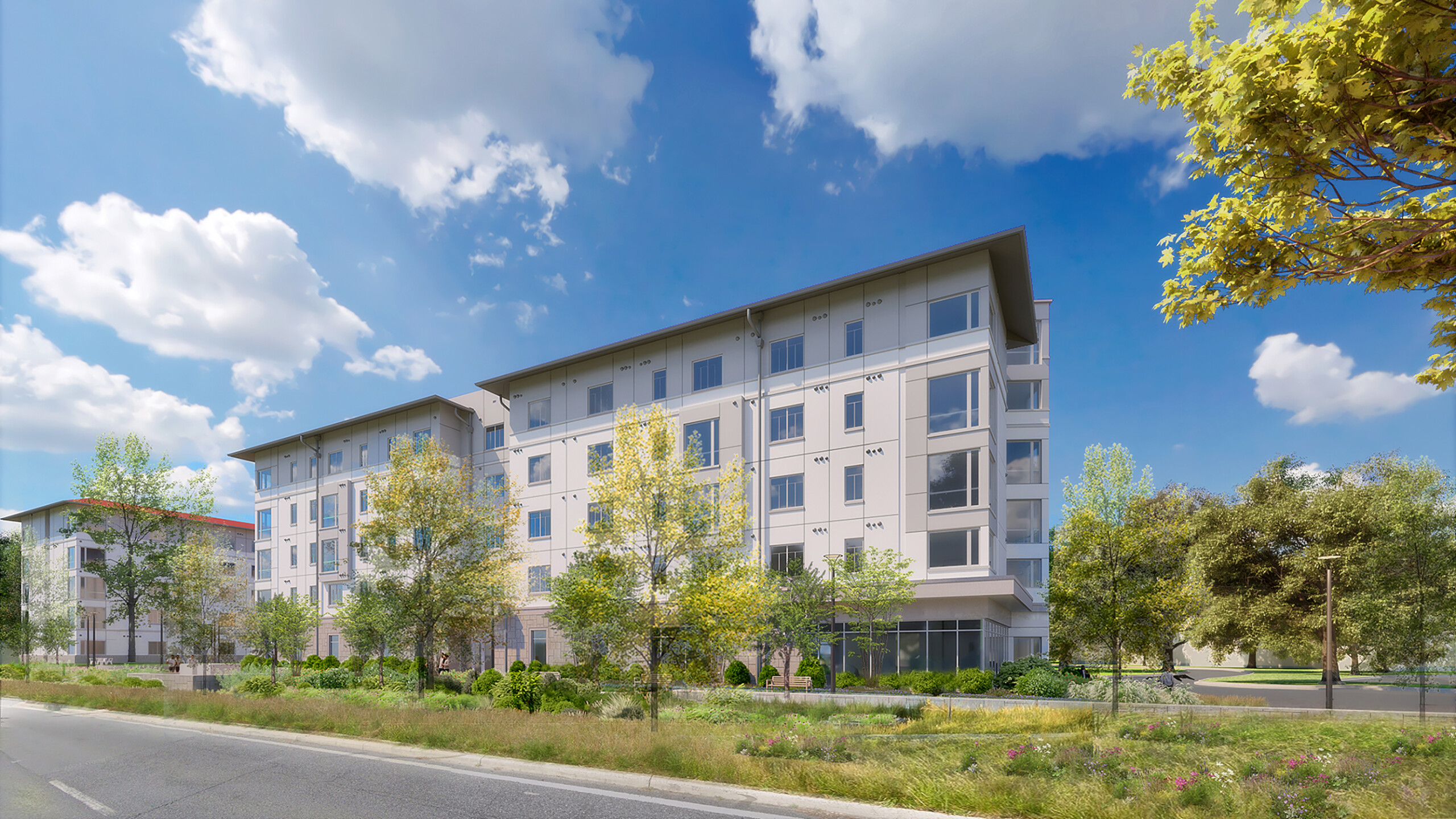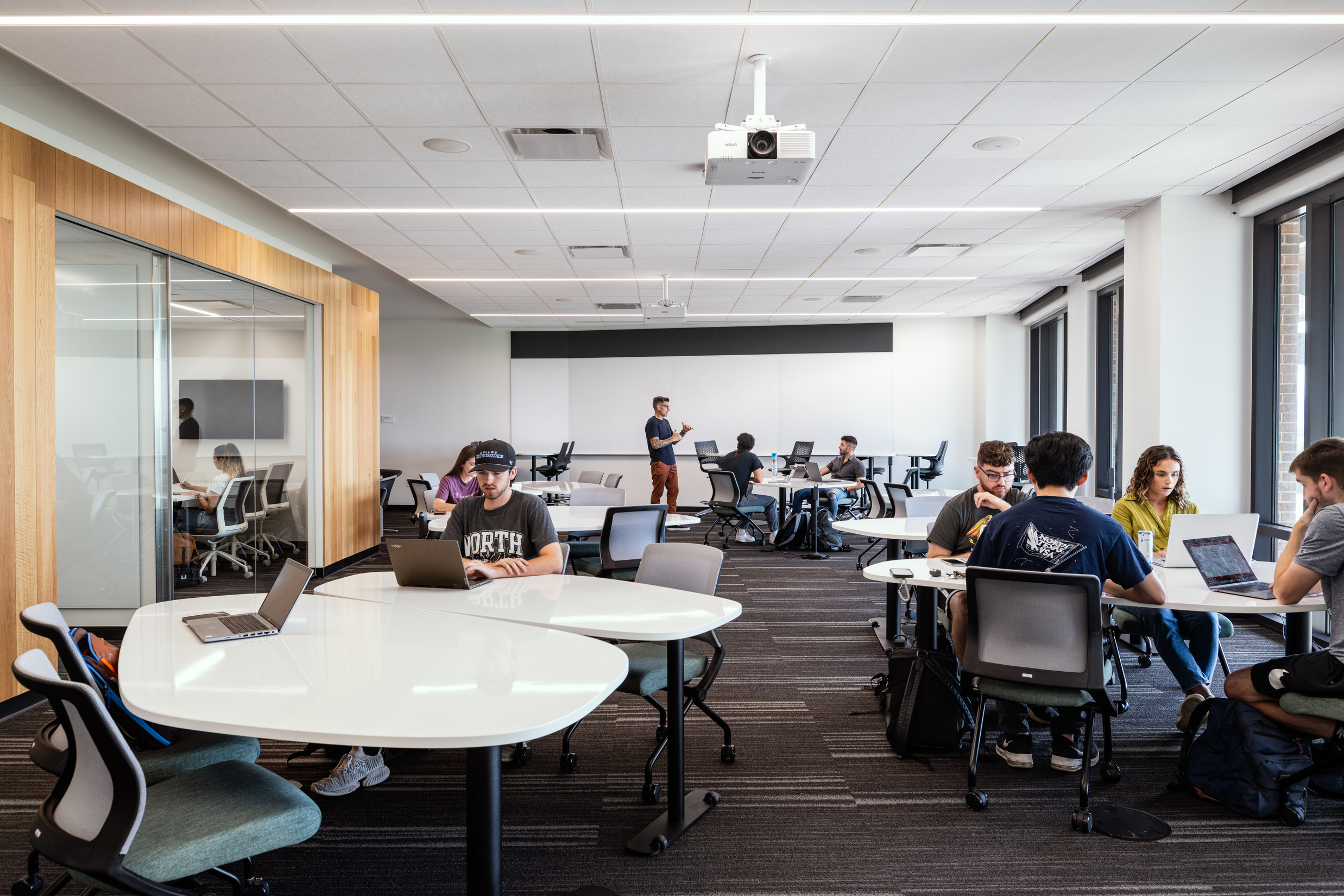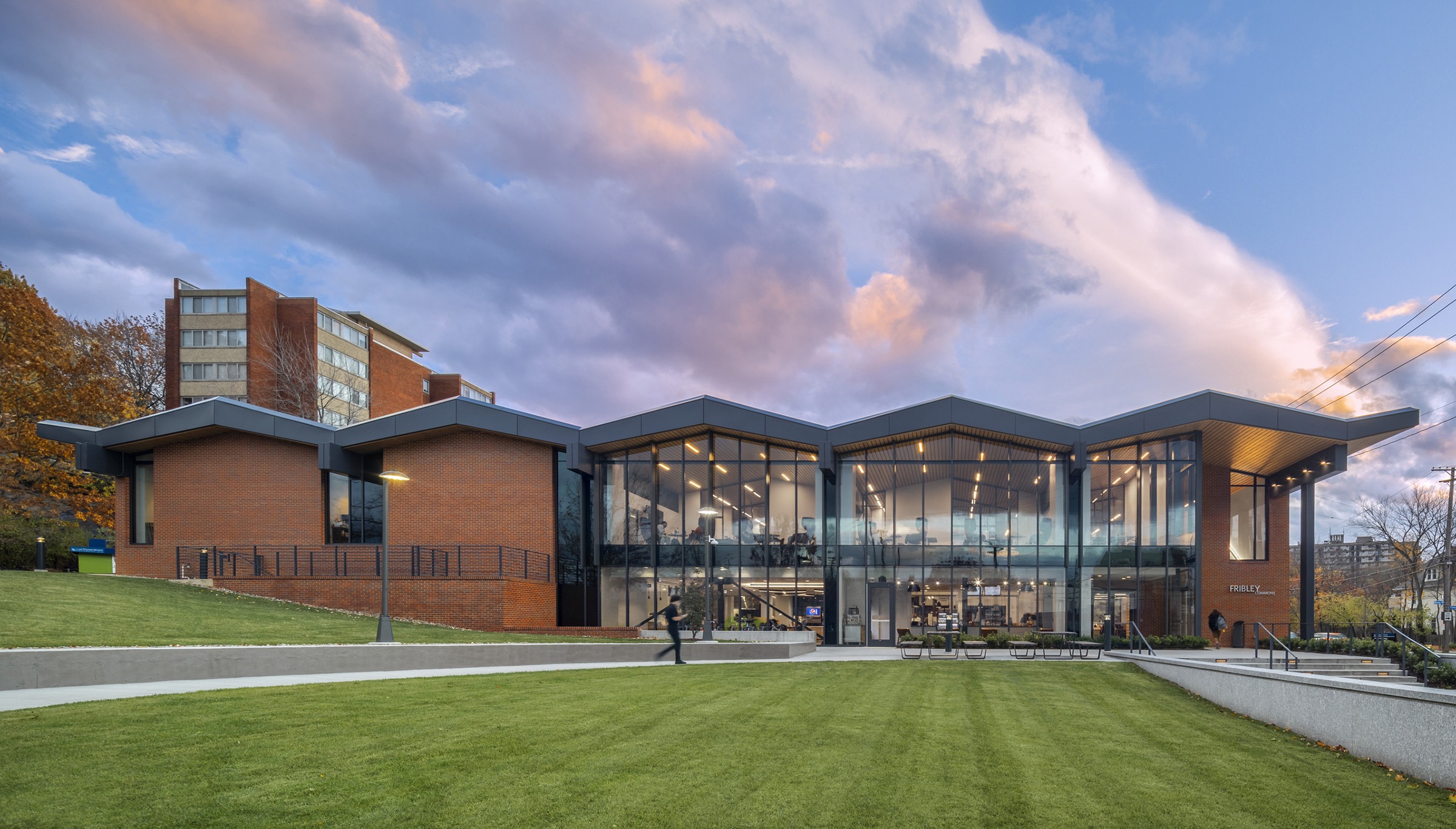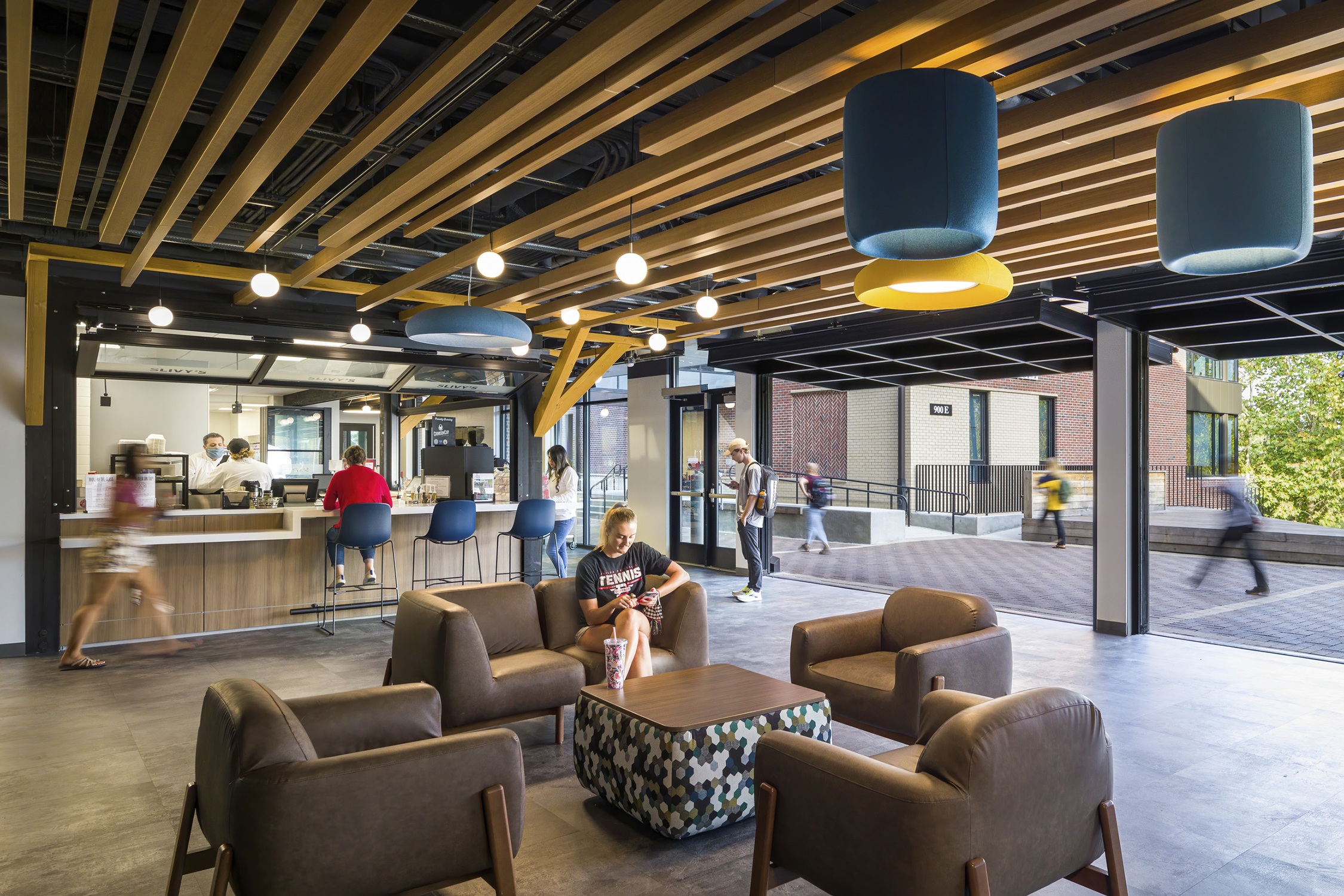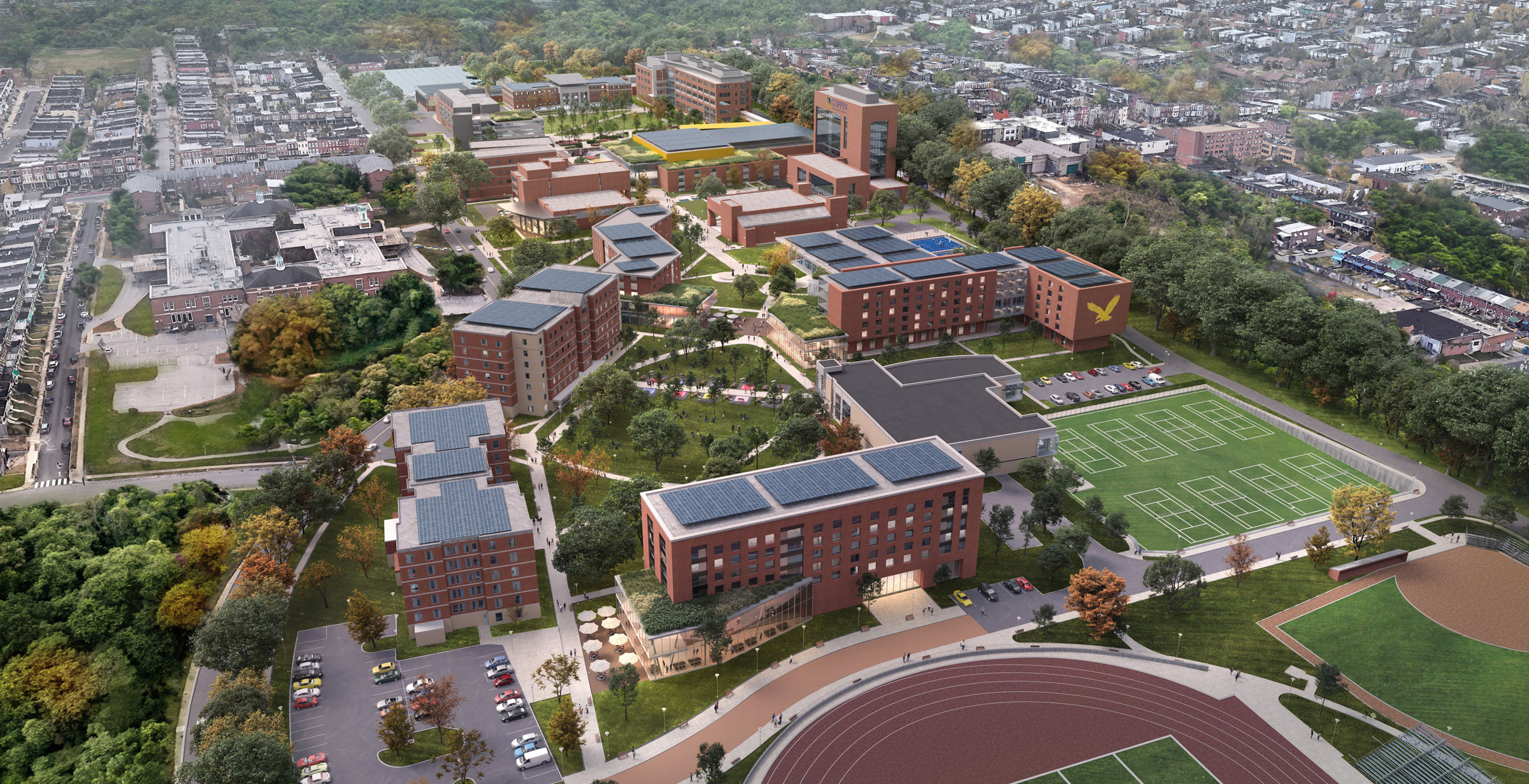How is campus housing evolving?
Ayers Saint Gross principals Dennis Lynch and Cooper Melton and Sustainability Director Allison Wilson were all recently featured in a special report from The Chronicle of Higher Education titled, “Campus Housing for Tomorrow: How to Plan for Student and Institutional Success.”
This in-depth report looks at recent shifts in the student housing landscape, including inflation and high building costs, enrollment changes, evolving student needs and demands, and more. Available for purchase in the Chronicle’s online store, the 58-page report is filled with valuable information campus leaders can use to make effective and informed housing decisions.
Here are some of the current challenges our experts spoke on:
Housing Demand and Supply Challenges
Many flagship institutions have seen an increase in out-of-state enrollments, leading to a housing crunch. The post-pandemic surge in construction costs, driven by supply chain issues, has exacerbated these challenges. Principal Dennis Lynch weighed in on how targeted renovations of existing residence halls can achieve greater equity between living experiences while keeping room and board affordable for students.
